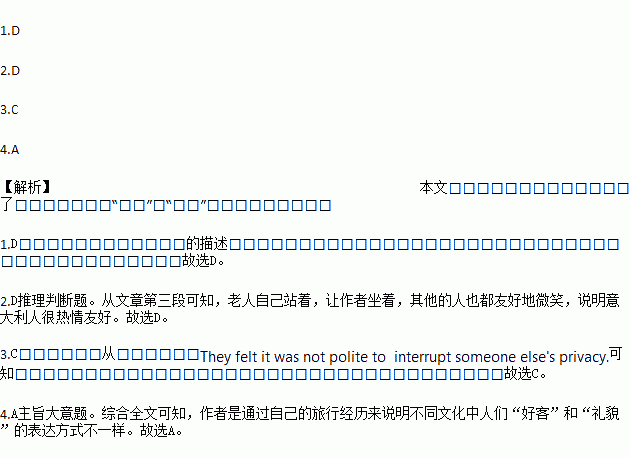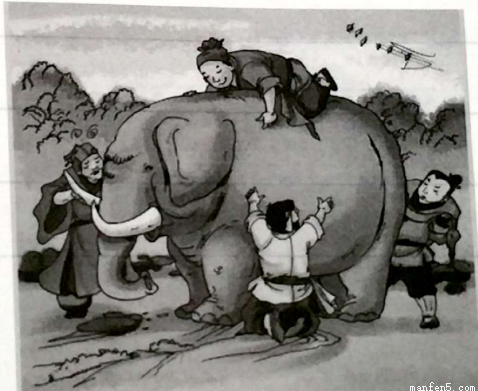题目内容
I was born and raised in England in a culture where privacy and “keeping yourself to yourself” were valued traditions. Speaking to strangers was not encouraged. People were most hospitable(好客的) and friendly.
However, I have been lucky enough to spend some time in both Italy and the US, where I found traditions of hospitality and politeness to be very different.
I experienced Italian hospitality first-hand on a crowded railway carriage travelling, one afternoon, from Genoa to Florence. Sinking gratefully into an empty seat, I was scolded in rapid Italian by a gentleman who was returning to this seat-it had not been “spare” after all. I apologized in English, and got up to allow him back into the seat. The gentleman obviously had no understanding of the English language, but he, too, realized my genuine(真诚的) mistake. He smiled and gestured for me to remain in the seat, and he himself remained standing in the corridor for the remainder of the journey. The other occupants of the carriage smiled and nodded at me and made me feel quite welcome amongst them. I feel that if this had been in England, a foreigner who made a mistake would not always be so kindly treated.
Transport also featured in the differences I noticed between English and American culture. I flew to New York on a plane with mainly English passengers. We sat together in near silence. Nobody spoke to me nor, as I expected, to anyone else they did not know. They felt it was not polite to interrupt someone else's privacy. However, when I travelled across the United States, whether by plane or Greyhound bus, I was never short of conversation. Conversation was going on all around me and whoever sat next to me was happy to introduce themselves and ask me about myself. They obviously felt it would have been rude not to speak to another person, whether they were strangers or not.
1.What do we know about the occupants when the author was travelling in Italy?
A. They were all on the side of the gentleman.
B. They all laughed at the author for his mistake.
C. They would not bear a mistake like the author's in public.
D. They all showed their understanding of the author's mistake.
2.How does the author finally believes the Italian people are?
A. Cold. B. Rude. C. Helpful. D. Hospitable.
3.Why did English passengers sit in near silence according to the last paragraph?
A. They were too tired to speak to anyone.
B. They were all strangers to each other
C. Privacy was a valued tradition in England
D. Everybody was deeply lost in thought
4.What can be the best title for the text?
A. Different Ways of Hospitality and Politeness
B. My Unforgettable Travelling Experience Abroad
C. Co-understanding Each Other
D. The Importance of Privacy



 right materials(材料) ready?2.
right materials(材料) ready?2.